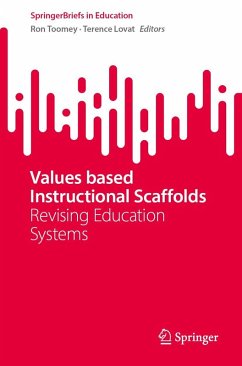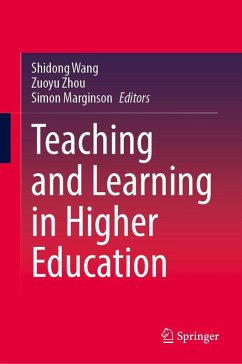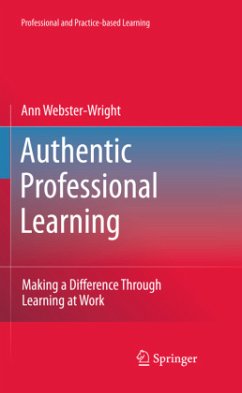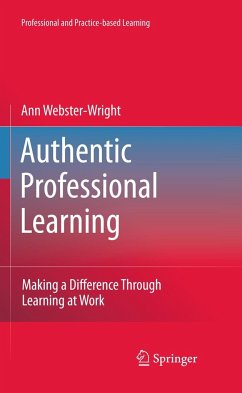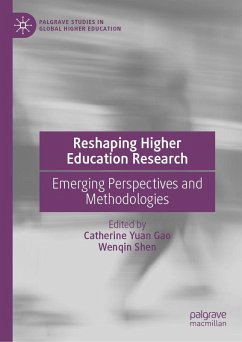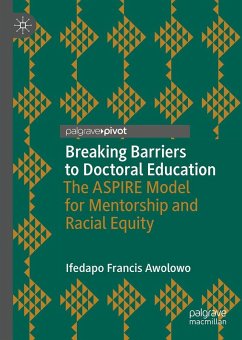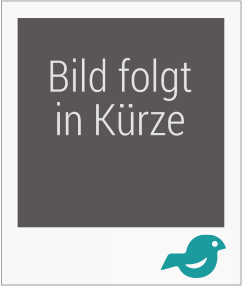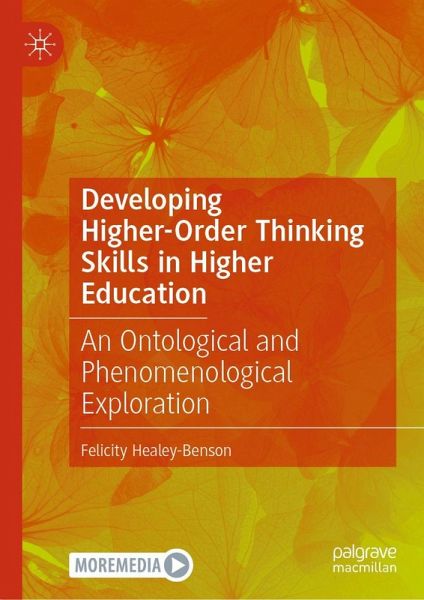
Developing Higher-Order Thinking Skills in Higher Education
An Ontological and Phenomenological Exploration
Versandkostenfrei!
Versandfertig in 6-10 Tagen
106,99 €
inkl. MwSt.

PAYBACK Punkte
53 °P sammeln!
This book offers an immersive exploration of how Higher-Order Thinking Skills (HOTS) are nurtured in higher education, drawing on phenomenological research and innovative methodology. It challenges the idea that HOTS can be instilled through strategies alone, instead revealing the lived experiences of educators navigating complexity, emotion and deep pedagogical care.The author introduces two original methodological tools - the Persona Vignette (PV) and Immersive Practitioner Inquiry (IPI) frameworks - which bridge phenomenological research and reflective practice. These contribute to what she...
This book offers an immersive exploration of how Higher-Order Thinking Skills (HOTS) are nurtured in higher education, drawing on phenomenological research and innovative methodology. It challenges the idea that HOTS can be instilled through strategies alone, instead revealing the lived experiences of educators navigating complexity, emotion and deep pedagogical care.
The author introduces two original methodological tools - the Persona Vignette (PV) and Immersive Practitioner Inquiry (IPI) frameworks - which bridge phenomenological research and reflective practice. These contribute to what she terms praktognostic knowledge: a synthesis of pedagogical experience and theoretical insight, emerging through sustained, reflexive engagement. Through richly illustrated educator vignettes and phenomenological themes, the book explores HOTS facilitation as an embodied, relational practice within complex institutional settings.
The book also connects HOTS with future-facing capabilities such as risk-taking, adaptability, resilience and metacognitive reflection - skills associated with entrepreneurial learning - and offers a conceptual contribution by linking pedagogical challenges with deeper philosophical roots, including embedded cognition and relational knowing.
This book will be of value to those working in educator development, learning innovation and reflective pedagogy, as well as researchers exploring phenomenology, academic identity and critical thinking.
The author introduces two original methodological tools - the Persona Vignette (PV) and Immersive Practitioner Inquiry (IPI) frameworks - which bridge phenomenological research and reflective practice. These contribute to what she terms praktognostic knowledge: a synthesis of pedagogical experience and theoretical insight, emerging through sustained, reflexive engagement. Through richly illustrated educator vignettes and phenomenological themes, the book explores HOTS facilitation as an embodied, relational practice within complex institutional settings.
The book also connects HOTS with future-facing capabilities such as risk-taking, adaptability, resilience and metacognitive reflection - skills associated with entrepreneurial learning - and offers a conceptual contribution by linking pedagogical challenges with deeper philosophical roots, including embedded cognition and relational knowing.
This book will be of value to those working in educator development, learning innovation and reflective pedagogy, as well as researchers exploring phenomenology, academic identity and critical thinking.





